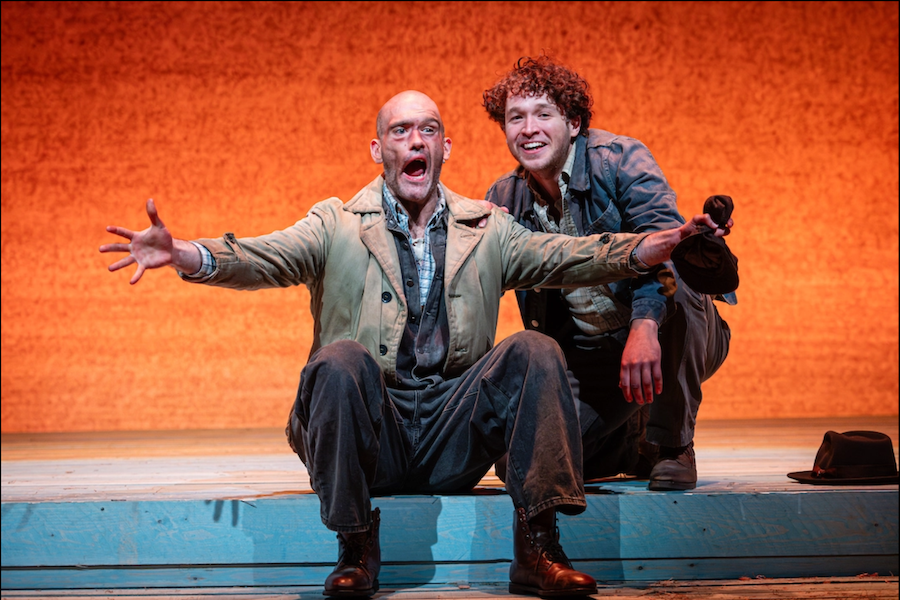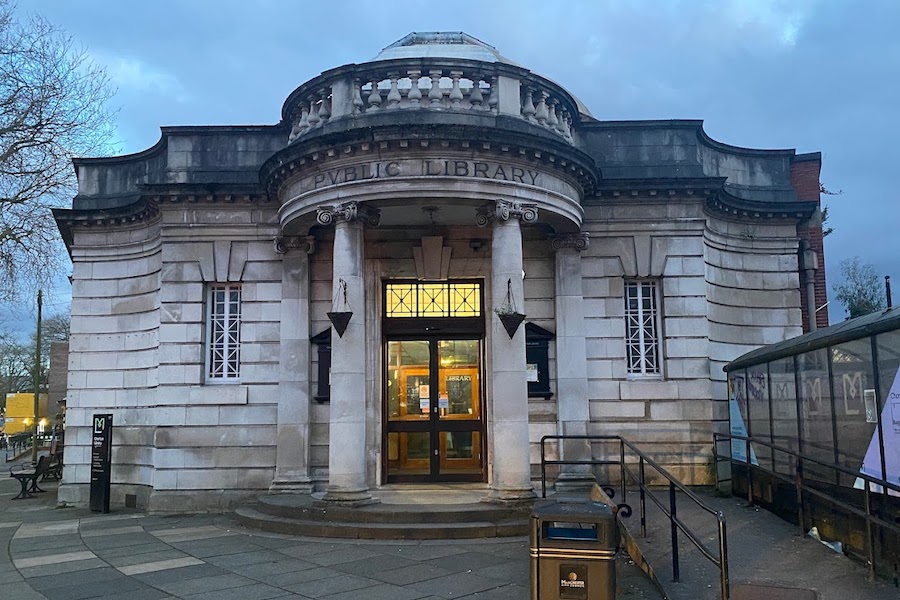Review: Too Much World at Once at HOME “explores climate change, isolation, mental health and friendship and sexuality”
- Written by Glenn Meads
- Last updated 2 years ago
- Theatre
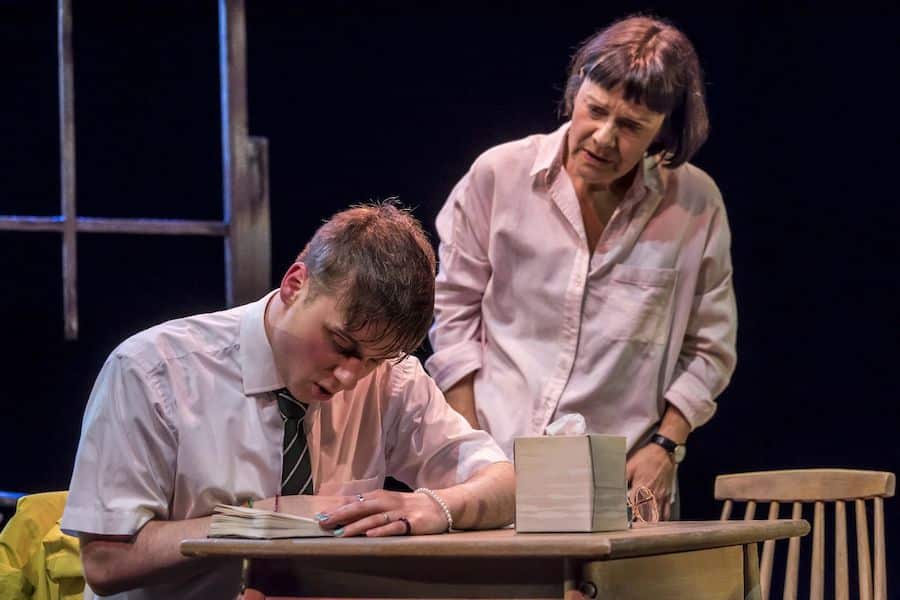
During lockdown, two of the many noticeable things we all saw was just how wonderful it was to see wildlife close up, even the Canadian geese in Castlefield seemed less aggressive than usual and they became quite tame and friendly.
The lack of cars on the road meant that you could even hear the birds singing in the city.
Mental Health was the other thing we noticed even more than before, the unpredictability of events and the fact that we had no real control over what was going on, meant that our state of mind became the same; very up and down.
Billie Collins’ new play Too Much World at Once explores climate change and its effects, isolation, mental health and friendship and sexuality. As I type it, It sounds like a tick box activity but actually, the writing is stronger than that, as the dialogue is naturalistic and flows in the same way as a conversation between two family members, including the silences and the signals that one person is not saying what they mean.
Noble (Paddy Stafford) is approaching his fifteenth birthday and feels left behind. His sister Cleo (Evie Hargreaves) is living the dream, as she is working on a remote island for the British Atlantic Survey, involved in research and studying the habits of the birds. She misses her brother but does not know how to broach this with him, for fear of making things worse.
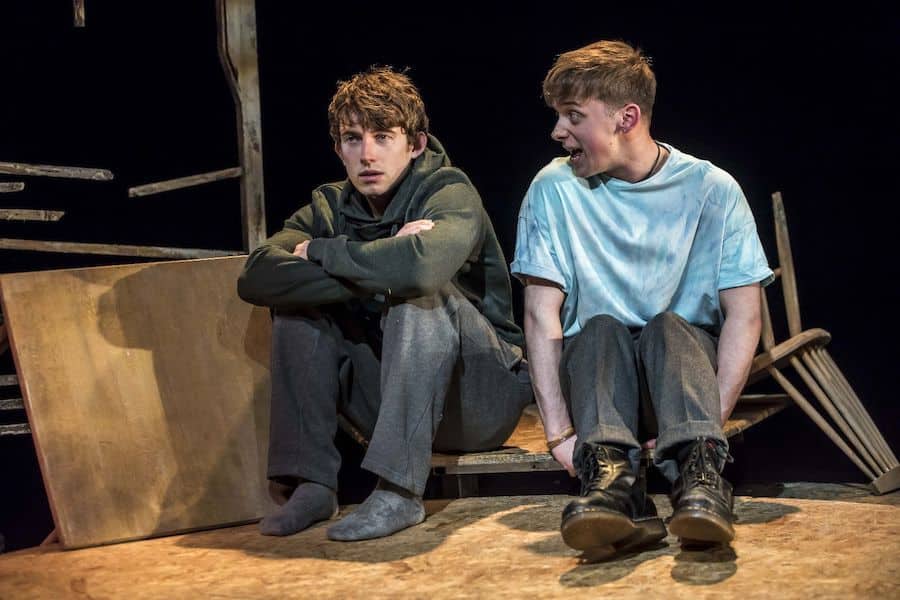
New kid – Ellis (Ewan Grant) appears and is a breath of fresh air for some in this small-town community. He is drawn to Noble, and they both enjoy each other’s company, as their time together is judgement-free time. Meanwhile, Noble’s mum Fiona (Alexandra Mathie) is teaching by day and struggling to keep the house from literally falling apart.
Billie Collins has a good ear for the way people speak and that is the real strength of this enjoyable and interesting play. Often teachers are painted as almost robotic, frazzled, hitting burnout with no interest in young people. Here, Fiona is an interesting character as she is nurturing and kind to other people’s children but does not know how to deal with her own.
Noble feels slightly underwritten as he adopts the teenage trait of not communicating and his story arc, however interesting feels slightly underdeveloped. He misses his sister and struggles to fit in and fights at school, but we don’t know who he is.
Likewise, Ellis is an interesting character but sometimes his story arcs do not always ring true. His retreat has clothes placed on the floor conveniently for when his new pal needs them. He impersonates Deidre Barlow, even though he was not born when this character was in Coronation Street.
When Noble goes missing for a week, his mum sits and paints Noble’s nails and even though this is a ruse to get him to talk, it does not feel real, it simply acts as a plot device, and you wonder why she is not more frantic and calling the police and the media and demanding answers, as she keeps saying she loves her son.
The performances bring the piece to life as this group of actors work incredibly well together. Alexandra Mathie’s Fiona is filled with regret and guilt, yet she is the one holding the fort. Mathie presents both sides of her very well, front of house – in class and backstage at home with real ease.
Paddy Stafford gives Noble more than is on the page through his skilled use of silence, you can see his mind ticking. Evie Hargreaves is reduced to someone giving you statistics and scientific information as sister Cleo, and even though this is in the form of information for her brother in the form of recorded diary entries, it does feel very repetitious after a while. But she does hold your attention throughout.
Ewan Grant is incredibly engaging as new boy Ellis, he charms the audience immediately, as he imbues his character’s openness, quirkiness and sense of going against the norm of small-town attitudes with huge amounts of stage presence.
This is a play with many ideas and Adam Quayle’s direction is very generous to the actors, as they have time to breathe and explore different facets of their characters, over the two hours. But exploring so many different ideas (and these are big ideas) in such a short space of time means that there are moments where the play feels slightly overstuffed.
As you leave the theatre, you will think though about small changes that we can all make and not give up, even when voices are telling us to do so, or that climate change is not a problem.
And that message is worth taking with us and I applaud Billie Collins for writing a piece with this at its core because it is not going to go away there are moments of beauty here mixed with bleakness and these two extremes do replicate the world we are in right now.
Too Much World at Once is at HOME until 11th March.
- This article was last updated 2 years ago.
- It was first published on 7 March 2023 and is subject to be updated from time to time. Please refresh or return to see the latest version.
Did we miss something? Let us know: press@ilovemanchester.com
Want to be the first to receive all the latest news stories, what’s on and events from the heart of Manchester? Sign up here.
Manchester is a successful city, but many people suffer. I Love Manchester helps raise awareness and funds to help improve the lives and prospects of people across Greater Manchester – and we can’t do it without your help. So please support us with what you can so we can continue to spread the love. Thank you in advance!
An email you’ll love. Subscribe to our newsletter to get the latest news stories delivered direct to your inbox.
Got a story worth sharing?
What’s the story? We are all ears when it comes to positive news and inspiring stories. You can send story ideas to press@ilovemanchester.com
While we can’t guarantee to publish everything, we will always consider any enquiry or idea that promotes:
- Independent new openings
- Human interest
- Not-for-profit organisations
- Community Interest Companies (CiCs) and projects
- Charities and charitable initiatives
- Affordability and offers saving people over 20%
For anything else, don’t hesitate to get in touch with us about advertorials (from £350+VAT) and advertising opportunities: advertise@ilovemanchester.com
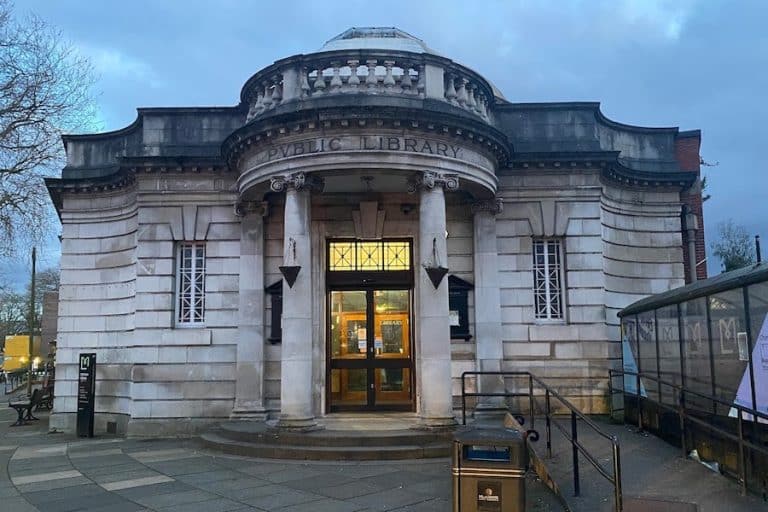
Chorlton Library gets a stunning renovation unveiling hidden treasures

How one selfless act sparked a career dedicated to saving lives
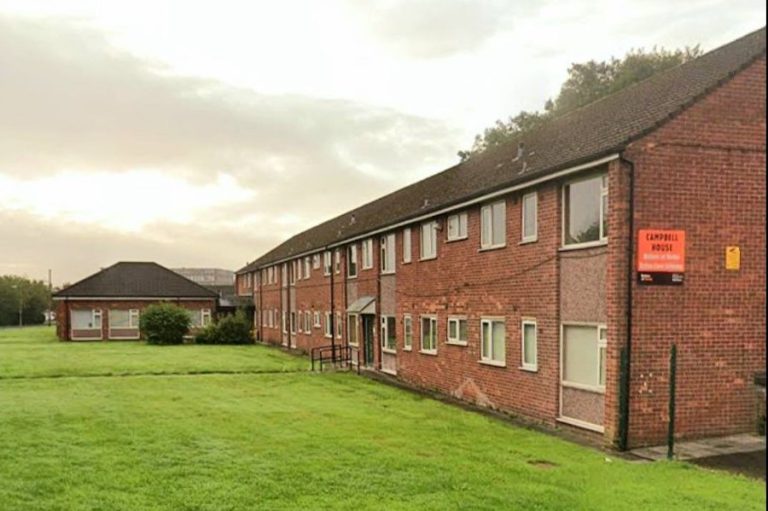
Former sheltered housing transformed into safe haven for vulnerable youth


Manchester and Los Angeles prove that opposites really do attract







